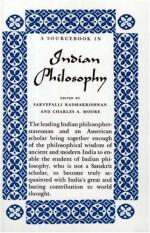|
This section contains 3,539 words (approx. 12 pages at 300 words per page) |

|
By and large, classical Indian philosophy treats truth within an epistemological context, and different theories of truth are connected with different theories of knowledge. Truth is regarded as a property of cognitions, not of sentences or propositions, although it is presupposed that a true cognition, if appropriately verbalized, would be expressed by a true statement. Cognitions form dispositions or beliefs, but the concept of a belief is also not in the forefront in classical Indian analyses. Modern interpreters tend to use the term veridicality, rather than truth, because of this focus. Cognitions are episodic psychological events divided into types according to epistemic and other criteria, and perceptual, inferential, testimonial, and hypothetical veridical (true) cognitions are not only the results of processes that are veritable "knowledge sources" (pramāṇa) but are also causes of effort and action, including speech...
|
This section contains 3,539 words (approx. 12 pages at 300 words per page) |

|


